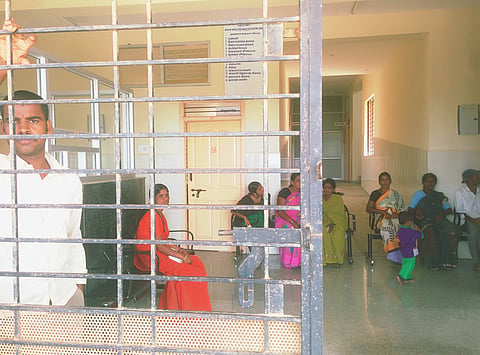

A petition in the Karnataka High Court challenging the compulsory rural service for government college medical graduates in the state has split the student and professional medical community into two camps that broadly opposed to each other.
An NRI medical student has challenged the Karnataka Compulsory Service Training by Candidates Completed Medical Courses Act, 2012, which makes it compulsory for MBBS graduates to serve for one year as government appointed doctors.
During the hearing on September 29, the petitioners said that there are many foreign students who have been granted visa for a limited period and they cannot be compelled to serve for one year. On behalf of the government, Advocate-General Ravi Varma Kumar argued that the students were obliged to serve as government doctors because the state was subsidizing their education.
These viewpoints broadly summarize the spectrum of opinion on the subject. Public health activists, doctors and students, however, say that a lot of other issues have been ignored.
According to Akhila Vasan of the Karnataka Jana Arogya Chaluvali, the public health heath infrastructure is a shambles. She said that only 55 percent of the Public Health Centres (PHC) at the district level in Karnataka function on a 24/7 basis, 7 percent of PHCs have female doctors, 37 percent have a gynaecologist. At the taluk level, only half of all government hospitals have a gynaecologist.

A closed public health centre in Heggadadevana Kote taluk
Calling it a “progressive move”, Akhila said: “It will ensure that there is a regular supply of doctors in the difficult areas. But, apart from this the government must also ensure that specialists also posted in these districts.”
She added that apart from specialists, staff at all levels of the health care system such as staff nurses, auxiliary nurse midwife (ANM) were also required, along with supporting infrastructure such as laboratory facilities, medicines and other equipment.
“There is a huge paucity of staff in sub-centres to Primary Health Centres, Community Health Centres to the district health centres. Many districts have just one medical officer who looks after three PHCs in a taluk,” she said.
Despite the serious paucity of doctors in rural areas, Srinivas Kakkaliya, who is a private medical practitioner in Mangaluru, believes the new act would not address the lack of support staff and facilities.
“If there are problems in catering to the rural population, it is not the responsibility of the freshly graduated doctors to make up for the lack of health services in rural areas. The government should stop seeing them as the solution,” he said.
Akhila, however, said that the pathetic state of the public health system was benefitting the private sector. “When there are no doctors in the government health centres people will automatically go to the private health centres. So the huge gaps in vacancies have immensely benefitted private health centre.”
Shivanand, a resident doctor in the Government Medical College, Hubbali, however, welcomes the move.
“I support the move because the government has funded our education entirely. Compared to the Rs 50 lakh that private medical college students pay, our fee is almost negligible. We owe the government at least this much,” he said.
However, Shivanand said that compulsory rural service was acceptable, provided that it lasted one year and was met with good working conditions and a decent salary.
“Many times in the last two and half years, the health minister claimed that he has been taking measures to provide better facilities and appoint doctors in rural areas. However, no work has been done. If the present state government really wanted rural areas to have better facilities, it could have found a better solution by now,” said Kakkilaya.

Nurses in a public health centre in Heggadadevana Kote taluk
But both Kakkilaya and Akhila agreed on one point: fresh graduates are inexperienced, which may affect the functioning of the PHCs.
“MBBS graduates are not experienced enough and do not have the expertise to individually handle cases among rural folks,” he said.
Akhila added: “Being a medical officer of a PHC is not a joke. It needs a lot of skill to take up different roles like preventive, curative and management etc. Hopefully the government would give some kind of orientation (at least for 15 days) before posting them in rural areas. Also, one medical officer cannot take care of a PHC 24/7. The government can appoint two or three doctors, who can work in eight-hour shifts,” she added.
Kakkilaya added that the government was “taking an easy way out” by getting the fresh graduates to serve the rural areas in order to avoid paying three times the salary to qualified doctors.
He also pointed out that there was no clarity on how the government would accommodate 4000 annual graduates in 400 vacancies in PHCs. “They could solve this issue by putting everybody on rotation for a couple months”
Currently, 80% of the PGCET- entrance test for post-graduate courses is backed by the government medical college students because they are the cream of the students. Implementing this would side-line the meritorious students.
“According to the present Act, there is a provision for students to serve the one year in rural areas after their post-graduation. But, that is, only if they qualify a seat in the entrance exam after MBBS,” said Shivanand.
Despite his support for the law, Shivanand is somewhat disgruntled that only medical students are being treated in such a manner.
“Indian Institute of Technology and Indian Institute of Management students also get subsidised education, but they do not have mandatory government service. If people are saying that we use our exchequer’s money for our education it should be applied to every government funded institutes,” he said.